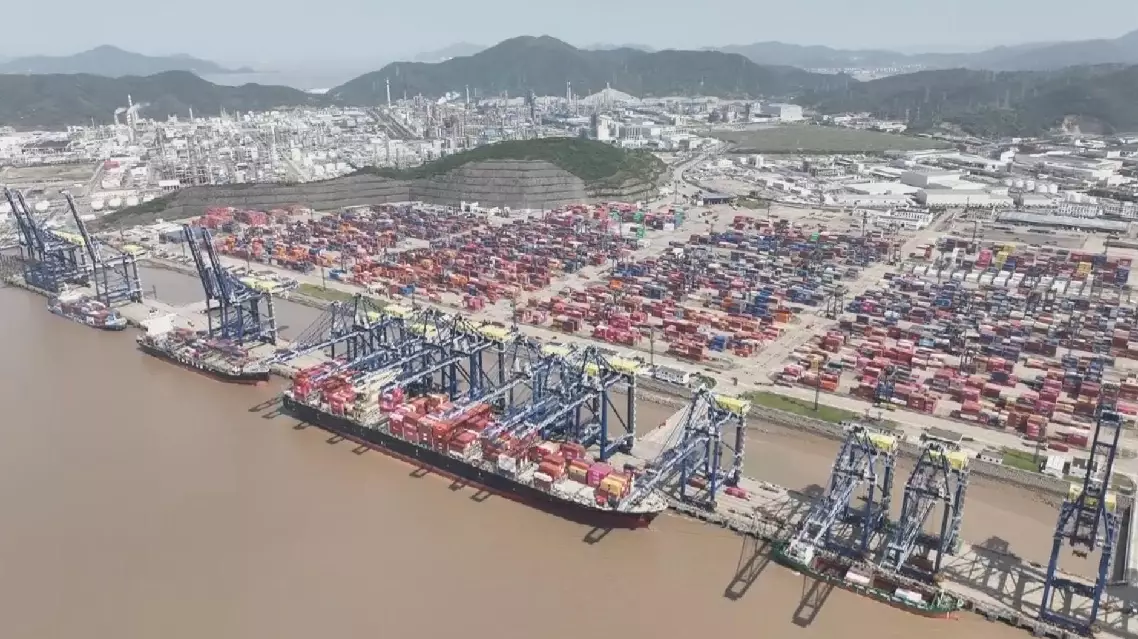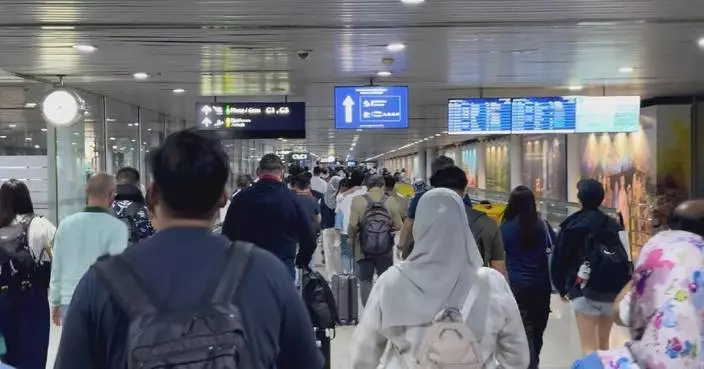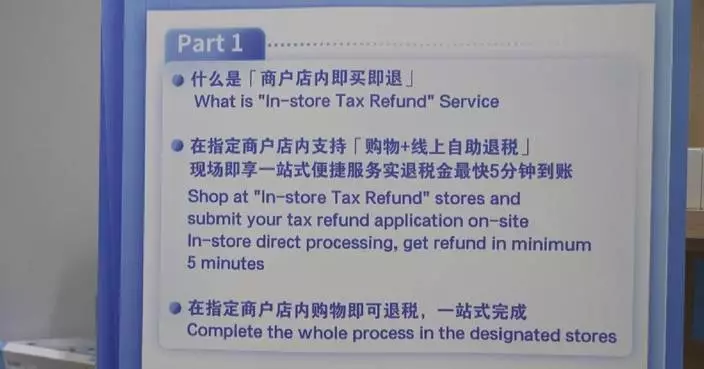U.S. President Donald Trump's tariffs on Canadian goods have been backfired by a surge in national pride among Canadians, with many looking for domestic alternatives to boycott U.S. goods, according to experts.
Canada has long relied on the United States, its largest trading partner, for a wide range of products. However, the recent wave of tariffs from the U.S. is pushing many Canadians to turn to local sources instead.
"For many reasons, including it will be more expensive (to buy U.S. products). Folks will be looking for more Canadian alternatives just across the board. That is absolutely true for everybody," said Sonya William, director of the Network of Independent Canadian Exhibitors.
The trade dispute has also led many Canadians to choose Canadian films over Hollywood productions, according to William.
"A really important thing to remember about film is that film is art. Film is culture. Film is about representing yourselves, telling stories that people around you relate to. People understand more than ever maybe like how important it is to watch Canadian film, to hear Canadian stories and to come together physically and to really have these important conversations about what it means to be Canadian," she said.
Canadians' increased preference for domestic films could significantly impact the U.S. film industry, which has already faced various economic challenges in recent years, including a slow recovery from the COVID-19 pandemic, two labor strikes, and the recent devastating fires in Los Angeles.
The introduction of tariffs, combined with an overall increase in the cost of living, could further depress theater ticket sales in the U.S., according to Edward Saxon, an Oscar winner and Endowed Chair of the Peter Stark Producing Program at University of Southern California.
"The theatrical experience in much of the country hasn't kept up with what's happened in shopping. So there are storm clouds all over the place with the cost of living being a major one," he said.

US tariffs on Canada bolster Canadians' support for domestic products, films: experts
Ningbo Zhoushan Port in east China's Zhejiang Province is demonstrating resilience in the face of U.S. tariffs by launching new trade routes and adapting swiftly to evolving market demands.
Ningbo, a hub for international trade, has further strengthened its position by embracing innovative solutions such as direct maritime routes and enhanced connectivity to Europe.
Building on this resilience, Ningbo Zhoushan Port unveiled the "China-Europe Express" in December 2024, a direct maritime route to Europe offering seamless "point-to-point" service. This innovation not only slashes shipment times but also reinforces the port's adaptability to global trade challenges.
"Previously, cargo shipped from Hefei City in east China to Europe went through the China-Europe Railway Express or traditional sea routes, which took about 40 days. Now, it only takes 27 days on the Anhui-Ningbo-Europe express route," said Gu Xuhui, marketing director for Zhejiang Seaport Logistics.
The express route connects the "China-Europe Express" with a freight railway from east China’s Anhui Province to facilitate more exporters.
Europe has become one of the major destinations for the port.
"Between January and April, we handled 1.31 million twenty-foot equivalent units (TUEs), up six to seven percentage points year on year," said He Binli, vice manager of Operations with Ningbo Daxie Container Terminal.
While the port is fully prepared for potential foreign trade fluctuations, exporters in the city are also shifting their focus to other markets.
Xu Ziyang, a seasoned medical equipment exporter, began preparing as early as 2017, driven by concerns over U.S. President Donald Trump’s policies towards China.
"[U.S. tariffs] have had little impact on us. In fact, we started adjusting back in 2017 to 2019, during his previous term. We aligned with China’s national strategy to expand into Belt and Road countries, as well as South American and African markets," said Xu, general manager of Ningbo Greeted Medical Instruments.
Xu’s sales jumped by 12 percent in 2024, and he expects continued growth this year.

Ningbo Zhoushan Port demonstrates resilience amid trade challenges





















































